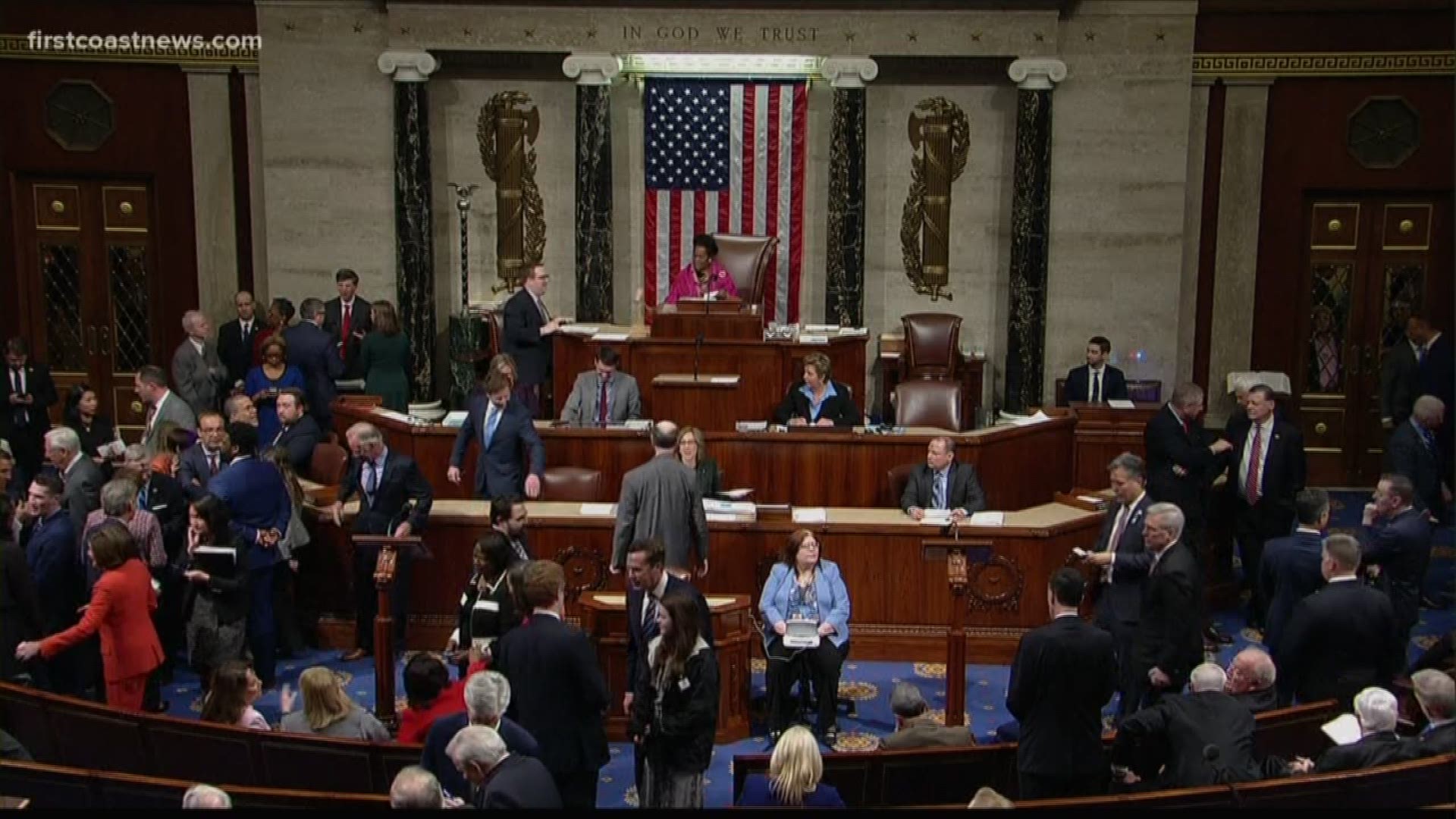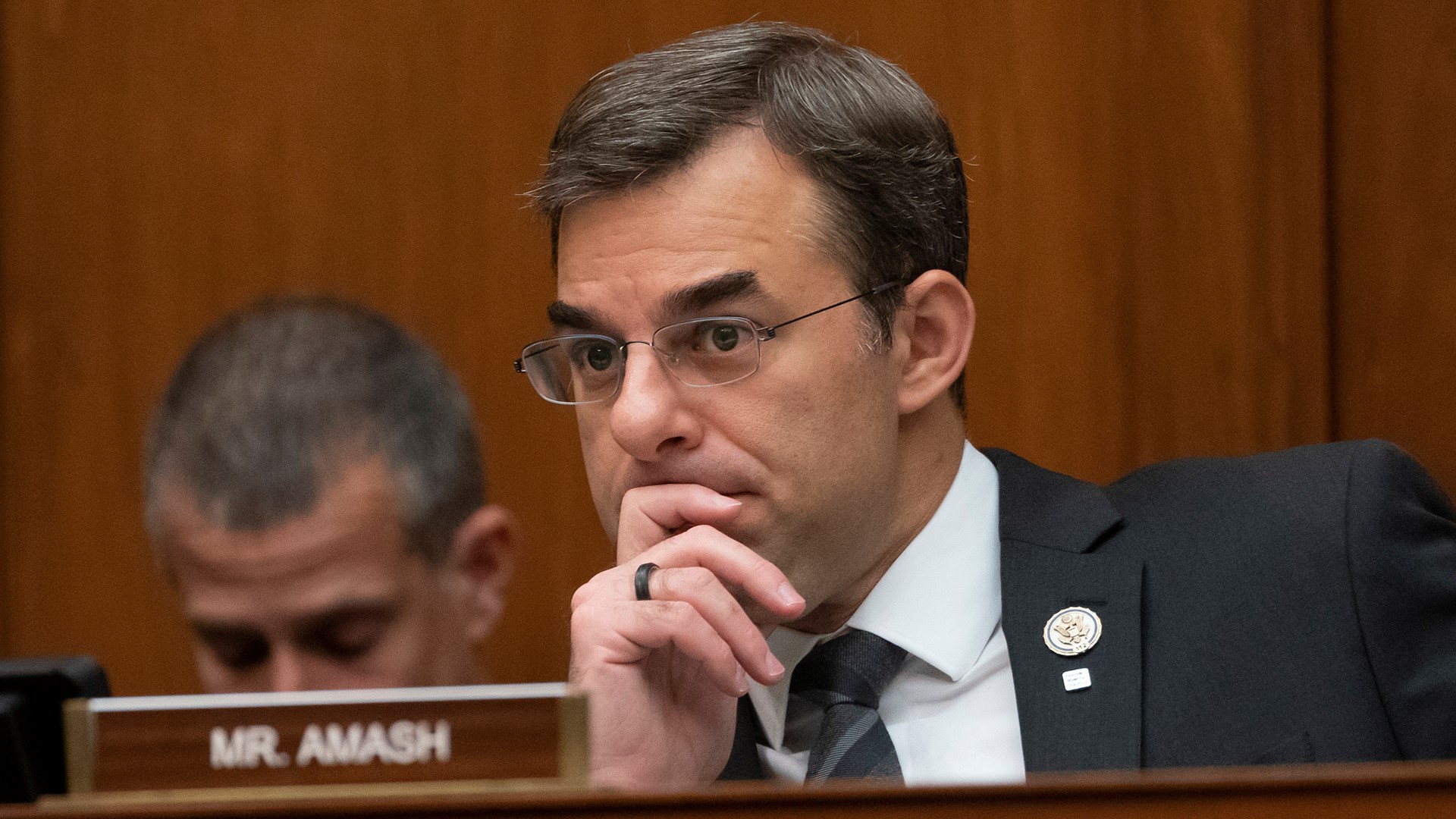WASHINGTON — The House of Representatives voted 410-4 Wednesday to pass the Emmett Till Anti-Lynching Act, which makes lynching illegal on a federal level. Rep. Justin Amash (I-Mich.) was one of the congressmen who voted against the bill.
The Senate passed similar legislation last year, and President Donald Trump is expecting to sign it into law, which would make lynching a federal hate crime punishable by up to life in prison.
Despite the wide bipartisan support, Amash voted no. The congressman was criticized on Twitter for voting against the bill, and he used the same platform to explain his reasoning.
“HR35 bans activities that are already illegal under federal law, and it’s based on the unconstitutional federalization of criminal punishment, which is a threat to civil liberties and civil rights—particularly for people of color,” Amash said in the first of 13 tweets.
The first federal hate crimes statute was signed into law in 1968, and hate crimes are punishable on the state level. However the bill’s sponsor, Rep. Bobby Rush (D-Ill.), said the bill will achieve justice for Till and more than 4,000 other lynching victims. Rush represents the district in Chicago that Till used to live in.
“For too long, lynching has not been classified as a federal crime, but to borrow a quote from Rev. King, ‘the arc of the moral universe is long, but it bends toward justice,’” said Rush in a statement.
Amash said he voted against the bill because it’s already illegal to murder someone because of their race.
“HR35 criminalizes conspiracies to violate various federal criminal laws, including many that are unrelated to lynching. But it’s already illegal to conspire to commit any federal crime, so the acts this bill covers are already criminal,” he said. The congressman also said the main effect of the bill is to expand the punishment for such crimes.
The bill was passed 120 years after the first anti-lynching legislation was considered by the House, and since then, dozens of similar bills have been defeated. It’s also been 65 years since Emmett Till, 14, was brutally tortured and killed in 1955 after a white woman accused him of grabbing her and whistling at her. The shocking death spurred on the civil rights movement.
The legislation says, “To heal past and present racial injustice, Congress must make lynching a federal crime so our nation can begin reconciliation.”
Amash further explained his vote by saying that creating federal laws for crimes typically handled at the state level “obscures which government—federal or state—is responsible for investigating and prosecuting the crime, and it gives power to unelected federal officials whom voters can’t directly hold accountable.”
The congressman is known for his libertarian principles, which are his guide for voting on new legislation. This involves limiting the power of the federal government and putting more responsibility on states. Amash said the anti-lynching legislation allows states to “shift the blame and avoid accountability.”
''With the passage of this bill we correct a historical injustice, based on a lie, that took the life of this young man,″ said Rush in a statement after the bill was passed. “After 120 years, and 200 failed attempts, the House finally positions itself on the right side of history, outlawing the heinous act of lynching once and for all.”
Amash also said this bill could lead to people being charged for the same crime on the state and federal level. He said the bill “is framed as a protection for people of color,” but those same people, he argues, “have been disproportionately violated by our massive an unaccountable criminal justice system.”
Amash also said this isn't the first time he's voted against federal hate crime legislation. In 2012, he voted no on a hate crime bill regarding unborn children and in 2018 he voted no on a hate crime bill regarding police.
This is not the first time Amash has voted against a bill that had significant support on both sides of the aisle. In July, he voted against the 9/11 victims compensation bill.
Amash has a history as a congressman for voting no on a lot of bills. He is an advocate for small government. In July 2018, The Washington Post called him 'Dr. No.'
RELATED VIDEO:
MORE on 13 ON YOUR SIDE:
- Bill that would ban transgender athletes passes Idaho House
- House makes lynching a federal crime, 65 years after Emmett Till was killed
- This Christian pastor is running for Congress—as a Democrat
- As DC plans for the 2021 inauguration, the Trump administration still owes the city million
- Trump appoints Mike Pence to lead coronavirus response
►Make it easy to keep up to date with more stories like this. Download the 13 ON YOUR SIDE app now.
Have a news tip? Email news@13onyourside.com, visit our Facebook page or Twitter. Subscribe to our YouTube channel.


